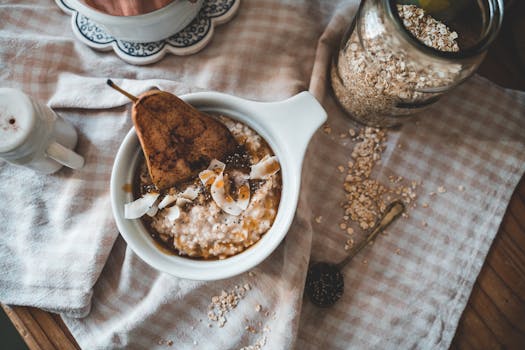Unlock the Secret of Morning Meals: When Should You Eat Breakfast for Optimal Health?

Introduction: Romancing the Dawn
Dream of the tantalizing scent of freshly brewed coffee. Picture warm, golden waffles, hear the comforting sizzle of bacon, and savor the tang of freshly squeezed oranges. These harmonious notes create the symphony of flavors that is the breakfast. But when should you enjoy this divine morning indulgence? Let's decode this gastronomic puzzle!
The Importance of Breakfast
Popularly hailed as the 'most vital meal of the day,' breakfast often takes a backseat in our hectic lifestyles. Rushed bites of toast, hurried sips of coffee, or completely ignored breakfasts are worryingly becoming the norm. However, it's not just 'what' we eat but also 'when' we have breakfast that can impact our day.
The Science Behind Breakfast Timing
Science provides fascinating insights into the ideal timing for our breakfast. Both traditional Ayurvedic wisdom and modern nutrition research indicate that everything we consume holds an optimal time. Findings suggest that the magic window to have breakfast falls within an hour to ninety minutes after you awake.
Body Clock and Breakfast: A Symphony of Functions
Curious about why this is? The explanation lies within our biology and needs. After a solid night's sleep, your body has fasted for seven to eight hours. Your glycogen stores are depleted, craving replenishment. Breakfast refuels these energy stores, jumpstarts your metabolism, and nourishes your mind. Moreover, our bodies operate on a circadian rhythm. This sun-aligned biological clock regulates our hormone production, digestion, and metabolism. Hence, our digestive system works at its peak capacity in the morning, absorbing and optimizing the nutrients from breakfast more efficiently.
Individual Breakfast Timings: A Personal Affair
Nutritionists highlight that breakfast timings can depend on each individual's lifestyle habits. There's no one-size-fits-all schedule - if you're an early bird who greets the dawn, relishing breakfast between 6 a.m. and 7:30 a.m. might suit you best. Night owls who favor extra sleep can aim for breakfast between 9 a.m. to 10 a.m. However, the key is to listen to your body and its hunger cues. If your stomach growls as soon as you're awake, dig into your morning meal without delay. If not, it's perfectly fine to wait until hunger strikes.
The Relevance of Consistency
Aim for consistency when scheduling meals. Adhering to regular meal times helps your body expect and prepare for food intake, enhancing metabolic efficiency. Regular meal patterns also prevent unnecessary snacking, contributing to a more balanced and nutrition-intense diet.
Crafting the Ideal Breakfast
Equally important is considering 'what' to have for breakfast. With nutrition in focus, aim for a balanced combination of lean proteins, healthy fats, and carbohydrates. Include superfoods like eggs, Greek yogurt, nuts, and fruits to enrich your breakfast experience.
Conclusion: Make the Most of Your Morning
So, resist the temptation to hit that snooze button tomorrow. Embrace the new day, head straight to your breakfast table, and enjoy a nutritious morning meal. Be it a refreshing fruit smoothie, comforting oatmeal, or delectable avocado toast, kick-start your morning right. Remember, breakfast doesn't just refuel your body - it sets your tone for the day, highlights those quiet, cozy moments, and preps you for the day ahead. Truly, a good morning!